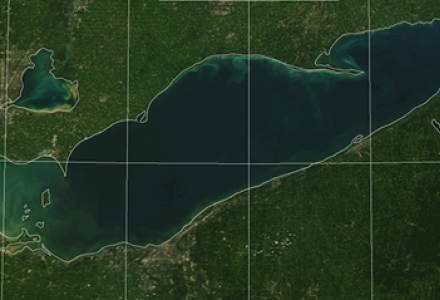
The Great Lakes support a US$6 trillion regional economy. But their value goes well beyond, including benefits such as aesthetics, wildlife habitat, biodiversity conservation, recreational fishing, swimming, boating and aquatic life support. The lakes also provide drinking water to nearly 40 million people in Canada and the United States.
Yet because most so-called “ecosystem services” are not transacted through markets, they are given a zero value by conventional measures. This raises the risk that the true value of ecosystem services are ignored, or at least under-considered, in public decision making.
We don’t need to look very far for examples. In the 20th century, vigorous industrial activity in the Great Lakes region created good jobs and income benefits, but, in many cases, came at a substantial environmental cost, leaving current generations paying for the cleanup of many highly contaminated areas.
There is growing awareness of the need to better understand, measure and communicate the true value of Great Lakes ecosystem services. But how do we do this?
Recently, key stakeholders came together in a virtual three-day workshop to address this need. Panelists and presenters discussed the current state of knowledge and gaps relating to nonmarket valuation of Great Lakes fisheries and ecosystem services and presented various valuation methods.
A comprehensive literature review underscored a large knowledge gap: Only a handful of nonmarket valuation studies have been applied to the Great Lakes. An encouraging outcome of the workshop was establishing a community of practice as a way to elevate and prioritize studies that recognize the full range of values of the Great Lakes.
The values held by members of society are typically inferred by observing choices they make or using structured interview techniques. The point is to create knowledge that can lead to better and more informed public decision making that fully considers the impact of ecosystem services on social welfare.
A common concern is that putting a dollar value on nature could cheapen it by reducing it to a commodity. However, proponents of valuation note that people make choices every day that affect the environment, which reflect the implicit values they hold. Nonmarket valuation attempts to more clearly express those values so public decision making can be based on transparent and complete metrics.
Nonmarket valuation is not without challenges. Some ecosystem services are difficult to quantify, so it is inevitable that some values will go unmeasured.
For example, the contribution of ecosystem services to cultural and spiritual identity is unlikely to be measurable using conventional methods. Also, because valuation methodologies often rely upon structured interviews about hypothetical changes to environmental quality, there is always the potential for inaccurate or biased responses. But methodologies have evolved to expand the range of services to value, which helps minimize the potential for bias. They continue to evolve and improve over time.
Any decision we make as a society that affects Great Lakes ecosystems reflects our valuation, whether or not we make that valuation explicit. Making valuation explicit helps to ensure transparency in decision making, identifies winners and losers resulting from a decision, and ensures that the environmental costs or benefits of a project are measured on a level playing field with conventional economic costs or benefits such as income or employment. Now, a more concerted effort is needed to make nonmarket valuation of ecosystem services a consistent and core component of science, monitoring and assessment efforts in the Great Lakes.

Dr. John Livernois is a professor of economics, specializing in environmental issues, at the University of Guelph and is a member of the Science Priority Committee of the IJC Great Lakes Science Advisory Board.



